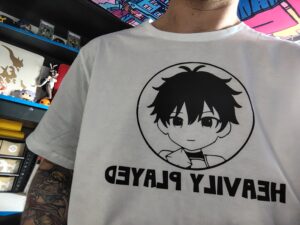When engaging with TCG communities, it’s important to remember that these are spaces built on shared passion and mutual respect. Positive interactions foster a welcoming environment where everyone can enjoy the game, learn, and grow. Below are some key Do’s and Don’ts to help guide your behavior and make the TCG community a better place for all.
Do’s:
- Be Respectful and Courteous:
- Treat everyone with kindness, whether they are new players or seasoned experts. Respect differing opinions, especially when it comes to strategies or deck choices.
- Acknowledge and appreciate the diverse backgrounds and experiences that each player brings to the community.
- Encourage New Players:
- Help beginners understand the rules, share tips, and offer advice in a supportive, non-judgmental way.
- Be patient when someone is learning, as we all started as novices at one point.
- Share Knowledge and Resources:
- Contribute positively by sharing helpful resources, strategies, or card recommendations. Whether through guides, video tutorials, or live-streams, your insights can help others improve their skills and enjoy the game more.
- Offer constructive feedback instead of harsh criticism when someone seeks advice.
- Participate in Local Events and Tournaments:
- Take part in local events, both competitive and casual, to meet fellow players and support your community.
- Engaging in events, whether online or offline, strengthens relationships within the community and keeps the hobby thriving.
- Trade Fairly:
- When trading cards, ensure that both parties are satisfied with the deal and that exchanges are transparent. Offer fair trade values, and communicate openly about the condition of the cards.
- If you’re unsure about the value of a card, do your research and be honest about its condition to avoid misunderstandings.
- Be Active in the Community:
- Participate in discussions, ask questions, and share your enthusiasm. Being an active member helps strengthen bonds and contributes to the overall growth of the community.
- Keep a positive attitude and be someone others can rely on for helpful advice or camaraderie.
- Respect Personal Boundaries:
- While it’s great to form friendships within the TCG community, always respect others’ privacy and personal boundaries. Not everyone may feel comfortable with deep personal conversations or unsolicited advice.
- Celebrate Wins and Losses:
- Whether you win or lose, be gracious. Celebrate your successes without bragging and handle your defeats with humility. This helps create a friendly and supportive environment where everyone can enjoy the game.
Dont’s:
- Don’t Be Rude or Dismissive:
- Avoid belittling others, especially newcomers. Telling someone their deck is “bad” or that they don’t understand the game can discourage them from continuing. Constructive feedback is always better than outright criticism.
- Don’t engage in personal attacks or insults, either in-game or online. These actions can quickly escalate tensions and create a toxic atmosphere.
- Don’t Be a “Troll”:
- Refrain from stirring up drama or intentionally provoking arguments. Comments that are meant to inflame others, especially around sensitive topics like deck choices or opinions on cards, only harm the community.
- Avoid spamming threads or chat rooms with irrelevant or inflammatory comments.
- Don’t Hoard Information or Resources:
- While it’s fine to keep some strategies to yourself, withholding knowledge or resources that could help others, especially new players, is detrimental to the growth of the community. Share the wealth of information to help everyone improve.
- Don’t monopolize discussions or act like you know everything—other players can bring valuable perspectives.
- Don’t Disrespect Tournament Rules or Community Norms:
- Always follow the rules for official tournaments, whether they are local or online. Cheating, bending the rules, or unsporting behavior can lead to penalties and may tarnish your reputation within the community.
- Respect the norms and etiquette of the community. This includes being on time for events, respecting event organizers, and avoiding disruptive behavior.
- Don’t “Gatekeep” New Players:
- It’s important to make sure everyone feels welcome. Don’t discourage people from playing just because they are less experienced or have “unoptimized” decks. No one should feel unwelcome because of their skill level.
- Avoid dismissing people’s contributions or deck choices just because they don’t align with “meta” trends.
- Don’t Take Advantage of New Players:
- In trades or competitions, don’t take advantage of someone who might not know the true value of cards or the depth of the game. Take care not to overcharge for cards or manipulate trades for personal gain.
- If you’re teaching someone, don’t “talk down” to them or take advantage of their lack of knowledge—help them feel empowered to learn.
- Don’t Engage in Toxic Competition:
- While healthy competition is a key part of the TCG experience, there’s no need to be excessively aggressive or disrespectful towards opponents. Don’t gloat or belittle others after winning, and never throw a tantrum if you lose.
- Avoid making others feel inferior due to their card collection or deck choices.
- Don’t Overlook Mental Health and Well-being:
- If someone seems upset, frustrated, or overwhelmed, be sensitive to their feelings. Sometimes people need a break from the competitive nature of the game, or they may be dealing with external challenges.
- Be supportive and understanding if someone needs space or seems disheartened, and avoid being dismissive of their emotions.
In summary, the key to being a positive member of the TCG community lies in promoting respect, inclusivity, and constructive engagement. Whether you’re trading cards, strategizing in a tournament, or simply chatting with others online, your actions shape the community around you. By following these Do’s and Don’ts, you’ll help ensure that the TCG space remains a friendly, welcoming, and exciting place for all players, from rookies to veterans alike.
